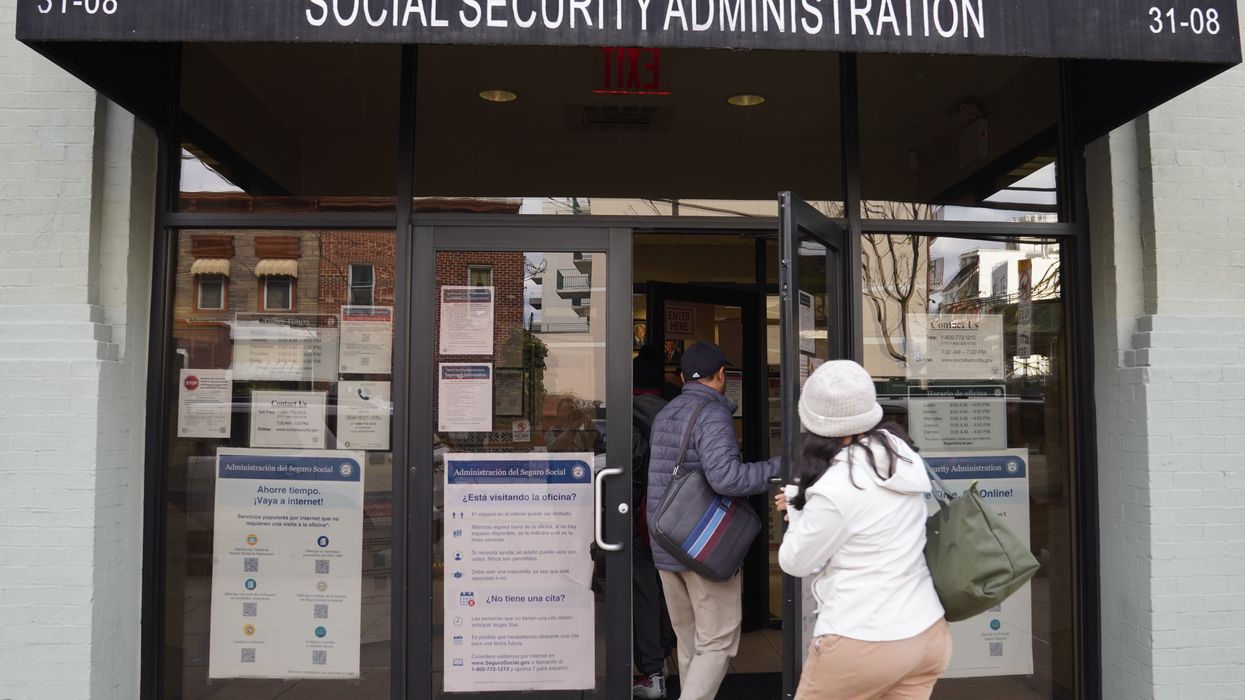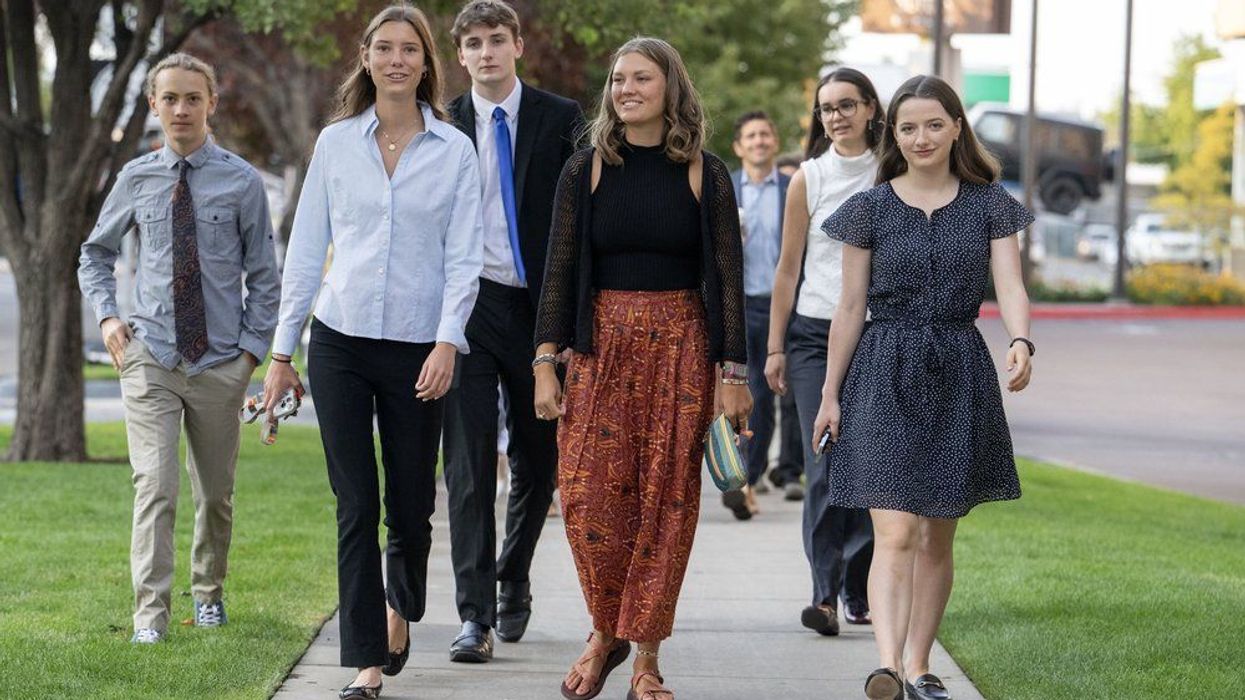April, 26 2012, 03:04pm EDT
For Immediate Release
Contact:
Naomi Starkman, Center for Food Safety: 917.539.3924
Bill Freese, Science Policy Analyst, Center for Food Safety: 814.237.2767
Paul Towers , Pesticide Action Network: 916.216.108
George Naylor: 515.544.3464
Anna Ghosh, Food and Water Watch: 415.293.9905
USDA Receives Over 365,000 Public Comments Opposing Approval of 2,4-D-Resistant, GE Corn
143 Farm, Fisheries, Public Health, Consumer, and Environmental Groups Send Secretary Vilsack Joint-Letter on Potential Threats to Human Health, American Farms; Public Comment Period Ends Friday, April 27
WASHINGTON
Over 140 groups and more than 365,000 citizens from across the country are urging the U.S. Department of Agriculture (USDA) to reject a Dow Chemical application seeking approval of a controversial genetically engineered (GE) corn that is resistant to the hazardous herbicide 2,4-D. In addition to the public comments, 143 farm, environmental, health, fisheries groups and companies will submit a letter to USDA Secretary Tom Vilsack expressing their overwhelming opposition to this crop. The comments and letter will be submitted when USDA's public comment period ends this Friday, April 27.

"American agriculture stands at a crossroads. One path leads to more intensive use of old and toxic pesticides, litigious disputes in farm country over drift-related crop injury, less crop diversity, increasingly intractable weeds, and sharply rising farmer production costs," said Andrew Kimbrell, Executive Director of the Center for Food Safety. "This is the path American agriculture will take with approval of Dow's 2,4-D resistant corn, soybeans and the host of other new herbicide-resistant crops in the pipeline. Another path is possible, but embarking upon it will take enlightened leadership from USDA."
According to agricultural scientist Dr. Charles Benbrook, widespread planting of 2,4-D resistant corn could trigger as much as a 30-fold increase in 2,4-D use on corn by the end of the decade, given 2,4-D's limited use on corn at present. Overall 2,4-D use in American agriculture would rise from 27 million lbs. today to over 100 million lbs. 2,4-D soybeans and cotton would boost usage still more. Yet USDA has provided no analysis of the serious harm to human health, the environment or neighboring farms that would result.
"It's clear that this new generation of GE herbicide-resistant seeds is the growth engine of the pesticide industry's sales and marketing strategy," said Marcia Ishii-Eiteman, Senior Scientist at Pesticide Action Network. "These seeds are part of a technology package explicitly designed to facilitate increased, indiscriminate herbicide use and pump up chemical sales."
In addition, 35 medical and public health professionals have signed a letter to USDA warning of the severe health harms that would likely accompany the massive increase in 2,4-D use, expected to accompany approval of the GE seed. "Many studies show that 2,4 D exposure is associated with various forms of cancer, Parkinson's Disease, nerve damage, hormone disruption and birth defects," said Wenonah Hauter, Executive Director of Food & Water Watch. "USDA must take these significant risks seriously and reject approval of this crop."
American farmers are also rightly concerned that the introduction of 2,4-D resistant corn will threaten their crops. 2,4-D drift is responsible for more episodes of crop injury than any other herbicide. Last week, a coalition representing more than 2,000 farmers and groups filed petitions with the USDA and the EPA, asking USDA to conduct a thorough environmental review before making a decision on approving 2,4-D resistant corn and EPA to convene an advisory panel to examine impacts from increased application of the herbicides.
"Farmers are on the front lines of this potential chemical disaster," said Iowa conventional corn and soybean farmer George Naylor. "Conventional farmers stand to lose crops while organic farmers will lose both crops and certification, resulting in an economic unraveling of already-stressed rural communities. I'm also very concerned about the further pollution of the air and water in my community."
"USDA must stand up for those growing America's food and put their interests, and the public's, ahead of chemical companies' profits," added Margot McMillen, an organic farmer in Missouri. Hers is the message of farmers who are speaking on this issue today at a national telepress conference organized by the National Family Farm Coalition.
Dow's 2,4-D resistant corn is a clear indication that first-generation GE, herbicide-resistant crops--specifically Monsanto's Roundup Ready (RR) varieties--are rapidly failing. RR crops, which comprise 84 percent of world biotech plantings, have triggered massive use of glyphosate (Roundup's active ingredient) and an epidemic of glyphosate-resistant "superweeds."
Though Dow claims 2,4-D crops are the solution to weed resistance a recent peer-reviewed study published in the prestigious journal Bioscience concludes that these new GE crops will pour oil on the fire. The study, entitled "Navigating a Critical Juncture for Sustainable Weed Management," suggests new GE crops will trigger an outbreak of still more intractable weeds resistant to both glyphosate and 2,4-D.
2,4-D drift and runoff also pose serious risk for environmental harm. The U.S. Environmental Protection Agency (EPA) and the National Marine Fisheries Service have found that 2,4-D is likely having adverse impacts on several endangered species, including the California red-legged frog, the Alameda whipsnake, and Pacific salmon, via impacts on their habitats and prey.
"EPA recently denied our petition to ban or control 2,4-D, putting their head in the sand instead of protecting people and plants," said Mae Wu, a health attorney at the Natural Resources Defense Council (NRDC). "If USDA now grants Dow's application, farmers, gardeners, wildlife, and kids will all face even greater exposure to this toxic herbicide."
If approved, the Center for Food Safety has vowed to challenge USDA's decision in court, as this novel GE crop provides no public benefit and will only cause serious harm to human health, the environment, and threaten American farms.
The groups submitting public comments to USDA include the Center for Food Safety, Pesticide Action Network, Food & Water Watch, Food Democracy Now, the National Family Farm Coalition, Organic Farming Research Foundation, the Organic Consumers Association, SumOfUs.org, and the Natural Resources Defense Council.
LATEST NEWS
AOC Rallies for Progressive Aftyn Behn in Surprisingly Close Race in Tennessee's Trump Country
Rep. Alexandria Ocasio-Cortez said the tight race shows that "people are increasingly recognizing that our fights are not left and right, but they are top and bottom. They are about all of us as working Americans."
Dec 02, 2025
Just over a year after President Donald Trump carried Tennessee's 7th District by more than 20 points, US Rep. Alexandria Ocasio-Cortez said Monday night that the final polls in the district's special election race between a Trump ally and a progressive state lawmaker are "a testament to how the American people are feeling in this moment."
Ocasio-Cortez (D-NY) was speaking at a virtual get-out-the-vote rally for state Rep. Aftyn Behn (D-51), who is facing GOP candidate Matt Van Epps in the district in Tuesday's special election. GOP Rep. Mark Green stepped down earlier this year for a private sector job after winning by 21 percentage points last year.
The electoral history of the district would suggest that Republicans could expect to easily win Tuesday's election, but with Van Epps ahead by just one or two percentage points in recent polling, Trump, House Speaker Mike Johnson (R-La.), and other Republicans are signaling fears that Behn could pull off an upset.
The president attacked Behn in a social media post Monday, warning that only Van Epps "cherishes Christianity and Country Music."
Like other progressive candidates in this year's elections, Behn has focused heavily on the need to make life more affordable for residents in the district, which was gerrymandered by state Republicans in 2022. The GOP eliminated a Democratic district in Nashville and its voters were added to three Republican districts, but Behn has worked to mobilize voters in predominantly Black areas that were added to the 7th District and told canvassers Monday evening that the redistricting scheme "backfired" on the Republicans.
AFTYN: “Clearly I’m living rent-free in President Trump’s mind.”
JUST NOW IN FRANKLIN — Rep. @aftynfortn Behn gave a pep talk to a group of fired up canvassers on the eve of an unexpectedly tight #TN7 special election.
(And a group hug) pic.twitter.com/1e0sNmNHEd
— The Tennessee Holler (@TheTNHoller) December 1, 2025
Behn has focused on high prices during the campaign, attacking Trump's tariff policies and decrying the One Big Beautiful Bill Act's cuts to Medicaid and nutrition assistance—calling the law the "Big Bullshit Bill."
"This is a wake-up call," she said after the law passed in July. "If we don't bring change to Congress, the billionaires and bought-out politicians will continue to rig the system against us."
As a state lawmaker, Behn proposed the Homes, Not Hedge Funds bill to stop private equity firms from buying up neighborhoods and advocated "for fair funding for rural communities" with her Rural Prosperity Act.
She's also spoken out and organized on the ground against Trump's mass deportation operation, which she's called a "flagrant abuse of power and state-sanctioned violence."
At the virtual rally on Monday night, Ocasio-Cortez said Behn's decision to take on a Trump-backed opponent in a heavily Republican district "takes a special kind of guts."
"That kind of guts is what we need more of in this country," she said. "A kind of person that says, 'We're not gonna do something because it's easy, we're gonna do it because it's the right thing to do.' And she is leading by putting herself on the line and raising her hand up first to say, 'I am going to fight for my neighbors no matter the odds.'"
🔥 WATCH — @AOC: “Tennessee is ready to elect @aftynfortn Behn. Miracles can happen… to run in an R+22 seat takes a very special kind of person with a very special kind of guts. That the race is so tight is a testament to how the 🇺🇸 people are feeling in this moment.” #TN7 pic.twitter.com/2QKr6EQUMI
— The Tennessee Holler (@TheTNHoller) December 2, 2025
Ocasio-Cortez added that the close race shows "people are increasingly recognizing that our fights are not left and right, but they are top and bottom. They are about all of us as working Americans and working-class people that are standing up against the injustices and the greed of our healthcare system, of our low wages."
Van Epps has sought to attack Behn for speaking out for the rights of immigrants, telling voters at a rally with the president, "The only way to stop crazy is to vote against crazy."
John Geer, a political scientist at Vanderbilt University, told the Washington Post that the fact that a Democratic candidate is being targeted so heavily by her Republican opponent in the 7th District and attracting the attention of the president shows the GOP is "worried."
“It’s interesting that Van Epps isn’t in a strong enough position just to ignore her,” said Geer.
Behn suggested that even if Van Epps ekes out a win in the close race, the competitive election has offered the latest proof of deep dissatisfaction with Trump's agenda.
“If we get close,” she told the Post, it will be due to the “affordability crisis that we are experiencing in Tennessee and the fact that the federal administration has not delivered an economic agenda to address the needs of working people in the state.”
Keep ReadingShow Less
'Sounds Like Another Way' to Cut Benefits as Trump Social Security Chief Aims to Slash Office Visits
The Social Security Administration's plan, warned one Senate Democrat, will likely lead to "worse service and more challenges."
Dec 02, 2025
The Trump administration is reportedly looking to dramatically reduce the number of people who visit Social Security field offices across the United States, a plan that Democratic lawmakers warned is yet another scheme to disrupt and ultimately cut benefits.
Nextgov/FCW viewed internal Social Security Administration (SSA) planning documents showing that the agency is aiming for "no more than 15 million total" in-person visits to field offices in fiscal year 2026—half the level of the prior fiscal year.
"Under Social Security Commissioner Frank Bisignano, the agency is aiming to push people to interact with Social Security online instead of going to a field office or calling the agency, although Bisignano told lawmakers in June that, even with his focus on technology, the agency is not 'getting rid of field offices,' despite reports of planned closures," Nextgov/FCW reported Monday.
One anonymous SSA staffer told the outlet that agency leadership wants "fewer people in the front door and they want all work that doesn't require direct customer interactions to be centralized."
"They appear to be quietly killing field offices," the staffer said.
The plan comes after the Trump administration carried out the largest staffing cut in SSA history, cutting the agency's workforce by around 7,000. The cut left one SSA worker for every 1,480 beneficiaries, resulting in understaffed field offices and overwhelmed phone operations.
Beneficiaries have also repeatedly faced issues this year attempting to access the Social Security website, problems that SSA's plan to curb field office visits could exacerbate.
Sen. Elizabeth Warren (D-Mass.), one of the lawmakers spearheading a probe into Bisignano's questionable tenure at the fintech company Fiserv, said in response to the new reporting that "this sure sounds like another way to make it even harder for Americans to get the benefits they've earned."
In a social media post on Monday, Warren highlighted testimony from seniors who have faced long wait times and other difficulties while seeking assistance from SSA under Bisignano's leadership:
Sen. Ron Wyden (D-Ore.), the top Democrat on the Senate Finance Committee, told Nextgov/FCW that "between staffing reductions, more restrictive documentation requirements for Americans to get assistance on the phones, and rapid reorganization of offices around the country, it’s difficult to see how" SSA's goal of slashing visits to field offices "will lead to anything other than worse service and more challenges at Social Security."
Keep ReadingShow Less
'Fighting for Our Lives': Youth Sue to Block Utah Fossil Fuel Permits
"Some days I can't even go outside because the air is so polluted," said one plaintiff. "I get headaches, feel dizzy when it’s too hot, and sometimes I can't even see down my own street because of smoke from wildfires."
Dec 01, 2025
Following the Utah Supreme Court's dismissal of a youth-led constitutional climate lawsuit earlier this year, 10 young Utahns on Monday launched a new case intended to block state permits for coal, gas, and oil development.
Backed by Our Children's Trust—a legal group behind various youth climate suits, including Juliana v. United States and Held v. State of Montana—the plaintiffs are suing the Utah Board of Oil, Gas, and Mining; the Division of Oil, Gas, and Mining; and the director of the latter, Mick Thomas, in state court.
"Plaintiffs bring this action to protect their fundamental rights to life, health, and safety that defendants are violating by permitting fossil fuel development, when doing so is harmful, unnecessary, and more expensive than clean, renewable forms of energy," says the complaint.
"Due to localized air and climate pollution caused by defendants' permitting activities, plaintiffs live in some of the worst air quality of any state in the nation and face climate disruptions, including elevated temperatures and deadly heatwaves, frequent and severe wildfires and smoke, exceptional drought, exacerbated medical conditions, and increased health risks," the filing continues.
"Defendants' fossil fuel permitting challenged here is unconstitutional because it harms the health and safety of plaintiffs, interferes with their healthy development, and takes years off of their lives," the document adds.
When the Utah Supreme Court upheld the dismissal of the earlier lawsuit in March, Our Children's Trust called it a "partial win" because, as lead attorney Andrew Welle explained at the time, "the decision opens a clear path forward for continuing our challenge to the state's actions in promoting fossil fuel development."
🚨Ten Utah youth filed a constitutional climate lawsuit against their state for issuing fossil fuel permits that endanger their health, lives, and safety. Learn more: bit.ly/49LVqA0
[image or embed]
— Our Children’s Trust (@youthvgov.bsky.social) December 1, 2025 at 4:07 PM
The lead plaintiff for both cases is Natalie Roberts, an 18-year-old who lives in Salt Lake City. In April, the American Lung Association's annual State of the Air report gave the state capital's metro area an "F" grade for both ground-level ozone (smog) and particle (soot) pollution.
"Both ozone and particle pollution can cause premature death and other serious health effects such as asthma attacks, heart attacks and strokes, preterm births, and impaired cognitive functioning later in life. Particle pollution can also cause lung cancer," said Nick Torres, advocacy director for the American Lung Association, in a statement when the report was released.
"Unfortunately, too many people in the Salt Lake City metro area are living with unhealthy levels of ozone and particle pollution," Torres continued. "This air pollution is causing kids to have asthma attacks, making people who work outdoors sick and unable to work, and leading to low birth weight in babies. We urge Utah policymakers to take action to improve our air quality, and we are calling on everyone to support the incredibly important work of the US Environmental Protection Agency."
Roberts, in a Monday statement, shared her experiences with her city's polluted air and increasingly hot temperatures.
"Some days I can't even go outside because the air is so polluted," the teenager said. "I get headaches, feel dizzy when it's too hot, and sometimes I can't even see down my own street because of smoke from wildfires. I worry every day about my health, my future, and what kind of world I'll live in if the state keeps approving these fossil fuel permits. We're fighting for our lives and asking the court to protect us before it's too late."
The complaint details similar experiences by other plaintiffs. When 21-year-old Park City resident Sedona Murdock "is exposed to dangerous air quality, she experiences pain in her chest and lungs, difficulty breathing, and coughing, and it can trigger life-threatening asthma attacks," it says. "Sedona experiences stress and anxiety because of the harms to her health that she has already suffered."
Otis W. and Lev W., brothers from Salt Lake City who are respectively 16 and 13, "experience painful headaches from bad air quality and have often had days where their schools have not allowed them or their peers to go outside," according to the filing. "Increasingly intense rain events have resulted in flooding and water intrusion in Otis and Lev's home, threatening their shelter and presenting a risk of dangerous mold growth."
"Decreased snowfall, snowpack, precipitation, and warming temperatures are diminishing water sources that provide water for Otis and Lev's family and community, threatening their water security," the complaint says. "Several trees in Otis and Lev's yard that provided shade for their home have already died from increased heat and drought conditions, making their home hotter and increasing the dangers to them of rising temperatures and heatwaves."
The document also points out how the pair and other youth plaintiffs have had to alter or abandon beloved outdoor activities, from team sports such as soccer to camping, hiking, mountain biking, rafting, running, and skiing, because of the fossil fuel-driven climate emergency.
"The state cannot continue issuing fossil fuel permits that put children's lives and health in jeopardy," said Welle, the lead attorney. "This case is about holding Utah accountable to its constitutional obligations to protect youth from serious harm caused by air pollution, climate impacts, and unsafe fossil fuel development. The court now has what it says it needs to hear and decide this case and prevent further harm to these young people and ensure the state governs responsibly."
Keep ReadingShow Less
Most Popular


